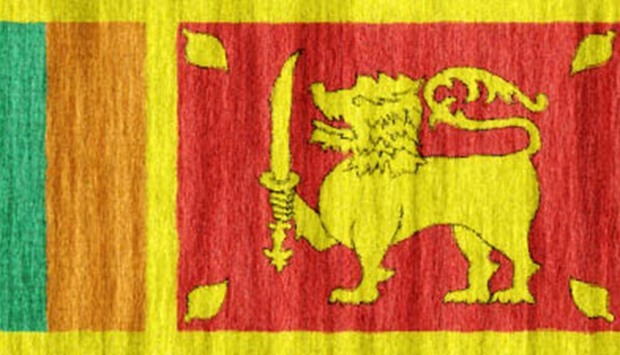Sri Lanka’s army yesterday replaced its intelligence chief as the government accused the military of involvement in a wave of unrest in the ethnic minority Tamil heartland of Jaffna.
The army announced the removal of intelligence director Suresh Sallay after civil society groups complained to President Maithripala Sirisena that the officer was responsible
for causing instability.
“Brigadier Sallay is being replaced with immediate effect by Brigadier Vijendra Gunatillaka,” army spokesman Roshan Seneviratne said.
He described the move as “routine,” but government sources said a highly influential group of intellectuals who met Sirisena on Tuesday night had pressed for Sallay’s removal.
The move followed allegations from chief government spokesman Rajitha Senaratne that a Tamil gang which has been terrorising civilians in Jaffna, 400kms (250 miles) north of Colombo, had the backing of the military.
Senaratne, who is also the health minister, said the military formed the so-called “Aava Group” in Jaffna when former president Mahinda Rajapakse’s brother Gotabhaya was in charge of the defence ministry.
“Some retired (military) officers and the former secretary (Gotabhaya) think they can use this Aava group to destabilise Jaffna and cause problems for the government,” Senaratne said. “We are taking action to arrest all those involved.”
Last month’s fatal police shooting of two Tamil students in Jaffna and protests by residents have raised tensions in the north, where residents suffered years of harassment from the Sinhalese-dominated military before and during a decades-long conflict.
There have been widespread protests against the shooting and against the Aava group, which residents say has been actively supported by military intelligence units in the area.
The new government which came to power in January 2015 and promised reconciliation has tried to restrict military involvement in day-to-day activities in Jaffna, the capital of minority Tamils.
However, civil society groups told the president that elements loyal to the former administration were still in key positions in the military and blamed the new administration for not carrying out a purge.
Government forces still maintain a large presence in the former-war zone and keep a close watch on the Tamil population, seven years after the end of the war.
The UN as well as the European Union has asked Colombo to take urgent measures to show its commitment to protect minorities and ensure reconciliation and accountability
for wartime atrocities.

SRI LANKA
